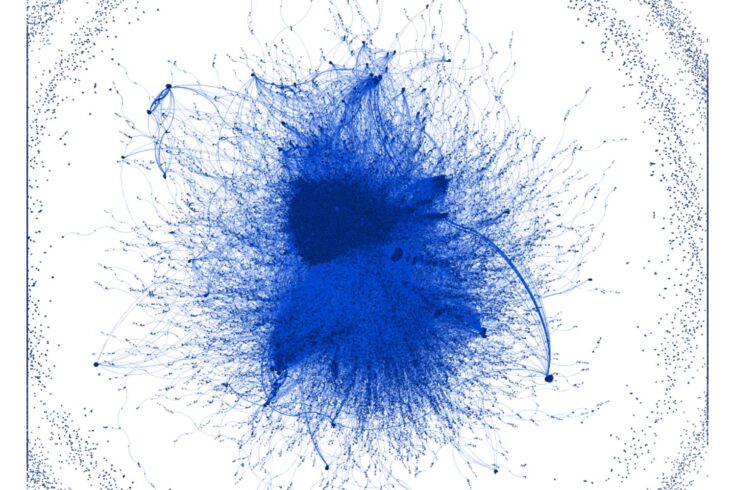The Network Stochastic Processes and Time Series (NeST) programme aims to develop new ways of extracting useful information from particular types of huge, complex datasets.
Achieving a step change
The aim is to achieve a step change in the modelling and analysis of vast banks. These banks are ever-growing, often interconnected data relating to customer needs and behaviour and the performance of systems and equipment.
Across many sectors, this will make it easier to pinpoint problems and opportunities, make accurate predictions and plan robustly.
Dovetailing leading-edge expertise in statistics, probability theory and data science, the 6-year programme is being funded by the Engineering and Physical Sciences Research Council (EPSRC), part of UK Research and Innovation (UKRI).
NeST involves 6 universities:
- University of Bath
- University of Bristol
- Imperial College London
- University of Oxford
- University of York
- London School of Economics
It also involves a range of companies and government organisations. Partners include:
- BT
- Microsoft
- the Office for National Statistics
- Financial Network Analytics
- Government Communications Headquarters
- Securonix
National centre of world-class expertise
The ambition is for NeST to establish itself as the world’s leading research centre in the development of new theory, methods and computational techniques. It will focus on tackling the mathematical and statistical analysis of datasets generated by ‘dynamic networks’.
These include not just IT networks, big and small, but also networks in the wider and more traditional sense. For example, the railway network and all the railway lines and connection points (such as stations, where the network connects with customers) that this incorporates.
The dynamic aspect of networks is particularly important: most datasets are not static but are constantly evolving and growing.
Producing solutions by numbers
This maths research has multiple potential fields of application and is targeting, for example:
- more secure, greener power grids: greater use of renewables is key to the UK’s energy security and its ability to achieve net zero carbon emissions. Integrating intermittent energy sources such as wind and solar requires sophisticated forecasting of net demand on power networks. NeST will develop computer models and simulations that help meet this challenge
- better detection of cyberattacks: in 2022, cybercrime cost global businesses, consumers and governments an estimated £1 trillion. Innovative tools are urgently needed to make IT networks safer. NeST will develop new ways of analysing network traffic to pinpoint tell-tale changes indicative of cyberattacks, enabling earlier detection and reducing damage caused
- improved mail services: mail companies face many logistical challenges to enhance the efficiency of their services. NeST will help them match resources to changing demand and better utilise their distribution infrastructure and vehicle fleets. Benefits will include improved services for business and the public, plus significant cuts to carbon footprints
Impact on our daily lives
Jane Nicholson, EPSRC Director for Research Base, said:
The NeST programme demonstrates the fundamental importance of the mathematical sciences to important sectors such as energy, transport and cybersecurity.
The team’s work in establishing itself as a leader in the study and exploitation of dynamic networks, which will reflect the fact that the data which underpin these critical sectors is constantly changing, will deliver benefits for industry and key services which impact on our daily lives.
Relevant to real-word issues
Professor Marina Knight of the University of York, one of the NeST Deputy Directors, said:
Everyone involved is tremendously excited to have the opportunity to undertake this timely research into such an important, growing area.
We aim to build a national centre showcasing our work and harnessing the skills of a highly diverse team with backgrounds in statistics, probability and data science.
Demonstrating that maths is directly relevant to real-world issues impacting everyone’s lives will be at the heart of NeST.
Top image: 1 minute of connectivity traffic on the Imperial College London computer network. Credit: Dr Francesco Sanna Passino, Imperial College London

